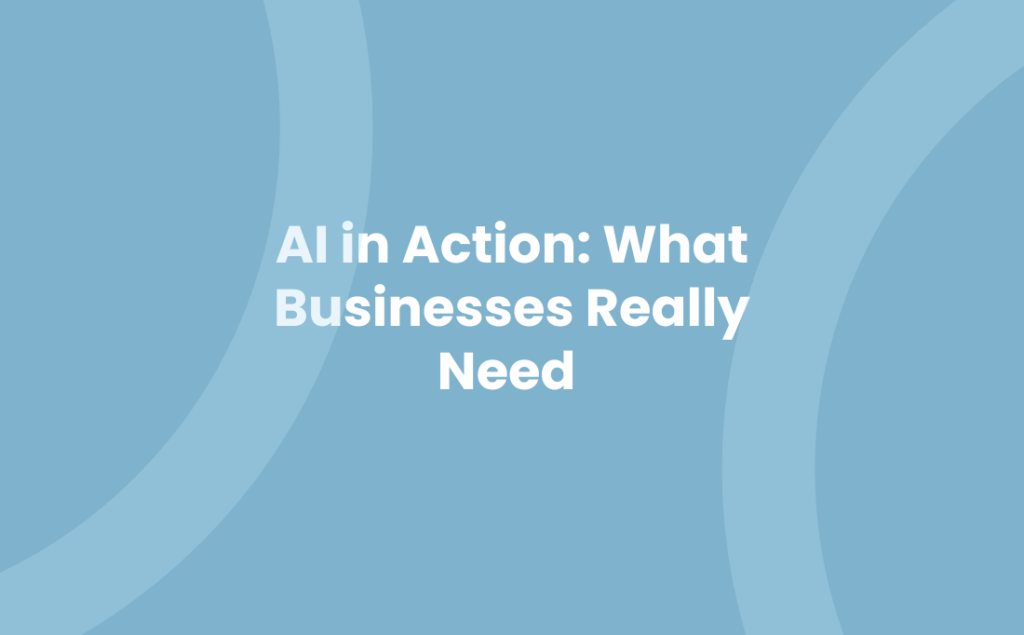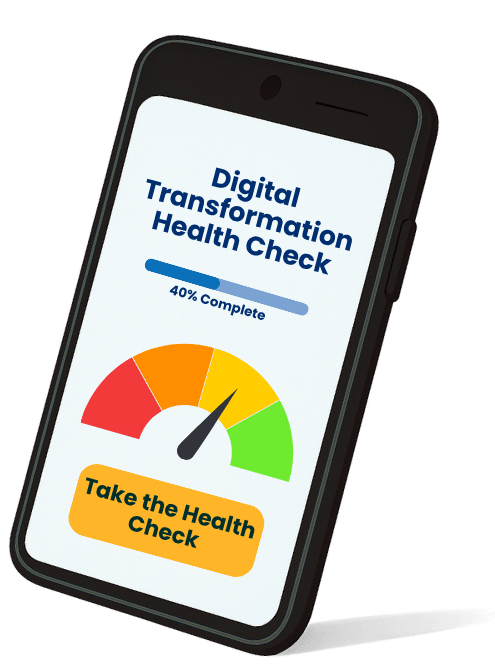AI is no longer a distant concept, it’s a practical tool transforming how businesses operate, serve customers, and scale. But with so much noise in the market, many organisations are asking: Where do we start? What’s worth investing in? And how do we make AI work for us – not the other way around?
To answer these questions, I sat down with Jonathan Wilkins, Director at Avrion, to explore how AI is already solving real-world problems for our customers. From automating supplier emails to empowering sales teams with instant insights, Jonathan shares candid, experience-backed perspectives on what businesses really need – and how Avrion delivers it.
Caroline: Jonathan, AI is everywhere right now – but many businesses still don’t know where to start. What’s your advice to companies that feel overwhelmed by the hype?
Jonathan: Start with what’s bugging you. That process that takes too long. That inbox that never stops. That report you can’t trust. You don’t need deep pockets – you just need the right problem to solve. AI isn’t about radically changing your business overnight. It’s about solving the things that have always slowed you down.
Caroline: That’s refreshingly practical. Can you give an example of where Avrion has helped a business do just that?
Jonathan: Absolutely. One of our customers – a national waste management company – was receiving up to 1,500 emails a week from suppliers. Each email had invoices and legal waste transfer notes that had to be manually verified for compliance. It took three to four full-time staff just to keep up.
We built an AI-powered automation solution that now processes 82% of those emails. It checks invoices, validates compliance, updates systems, and flags anomalies. The result? Time saved, fewer errors, and scalable operations. That’s AI doing the heavy lifting.
Caroline: That’s a great example of AI in data. What about customer service – where speed and empathy matter?
Jonathan: We’ve helped companies transform their customer service inboxes using AI. One client had a shared mailbox flooded with queries – everything from payment questions to complaints. We built a solution using Microsoft Copilot Studio that reads incoming emails, understands the context, gathers data from multiple systems, and drafts tailored replies.
But we didn’t stop there. The AI hands the response to a human for approval. It’s not replacing people – it’s giving them time back and helping them respond faster and smarter.
Caroline: Let’s talk about sales. How can AI support sales teams beyond dashboards and reports?
Jonathan: Salespeople shouldn’t have to chase updates. AI should whisper them.
We built an AI assistant that connects to project systems and answers natural language questions like “Where are we with the South Korea rollout?” It flags delays, suggests who to speak to, and even prepares handover notes. It’s like having a project manager in your pocket.
And we’re going further – training AI to summarise project health, identify risks, and support customer follow – ups. It’s about giving salespeople confidence and clarity.
Caroline: What about retention? Can AI help businesses spot when a customer might be slipping away?
Jonathan: Definitely. One of our clients in packaging distribution wanted to protect their customer base. We built an AI agent that monitors sales trends, flags anomalies, and suggests actions – like checking in with a customer who’s quietly reduced their order volume.
It’s proactive retention. The AI doesn’t just analyse data – it acts like a sales protection agent. That’s the kind of role-based intelligence we’re building.
Caroline: And internal knowledge? That’s often the hardest thing to access.
Jonathan: Spot on. We’re turning tribal knowledge into searchable sales power.
We record short interviews about delivered projects, transcribe them using AI, and store the data in a searchable format. Salespeople can ask, “Have we done anything like this before?” and get instant answers – without interrupting developers or digging through folders.
It’s a game-changer for onboarding, sales enablement, and customer conversations.
Caroline: Final question – what’s the one thing you wish more businesses understood about AI?
Jonathan: That it’s not plug-and-play. Think of AI as an employee – you’ve got to train it, guide it, and it’ll get better over time. The real win isn’t just cost saving – it’s scalability, consistency, and speed.
And if you’re wondering where to begin, start with what’s bugging you. Chances are, there’s an AI – powered solution waiting to help.
Whether it’s saving time, improving compliance, enhancing customer service, or protecting revenue, AI is proving its value across industries. As Jonathan shared, the key isn’t chasing trends, it’s solving what’s frustrating you and holding you back. With the right approach, AI becomes a trusted teammate: scalable, trainable, and surprisingly affordable.
At Avrion, we’re not just building tools, we’re building intelligent solutions that fit your business. If you’re ready to explore what AI can do for you, we’re here to help. AI is not just about knowing more, it’s about knowing faster. So, if you need a partner to cut through the AI noise and guide you through what AI can do for you, get in touch.



